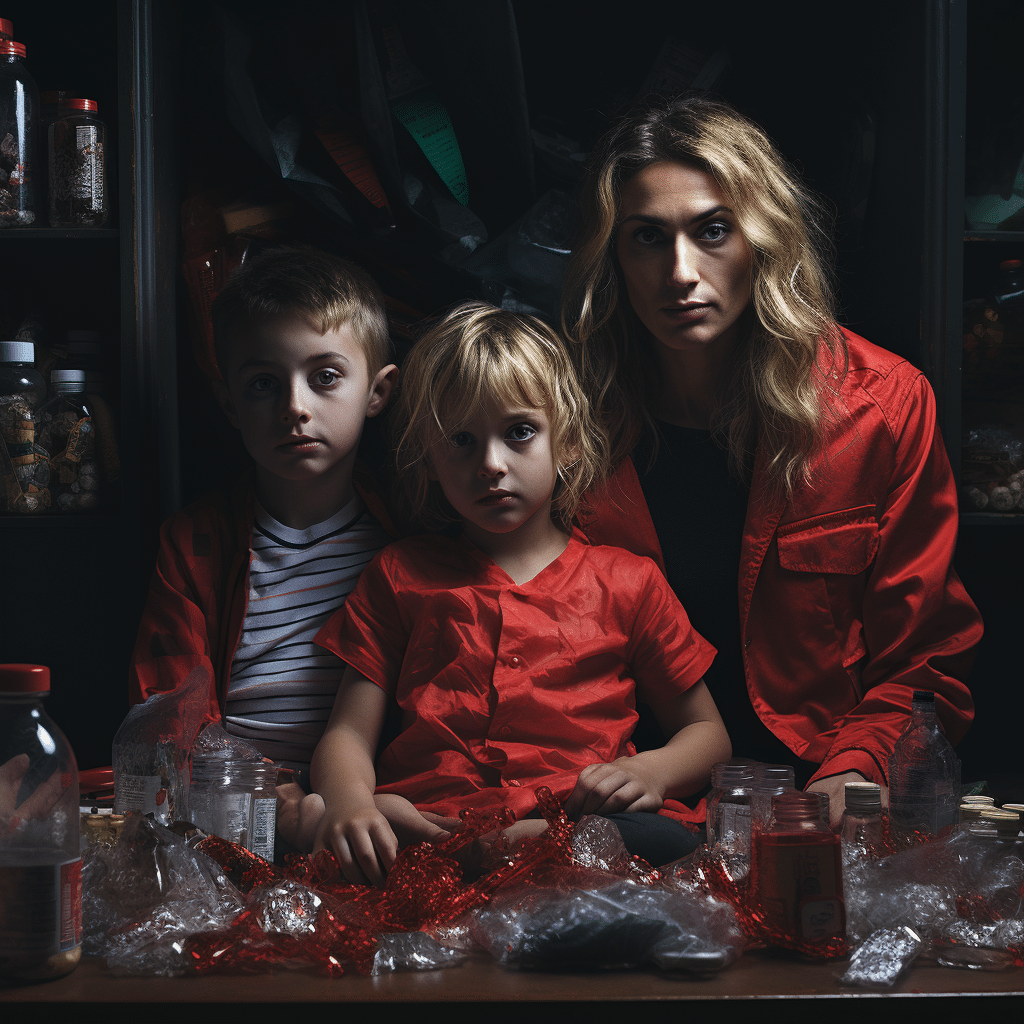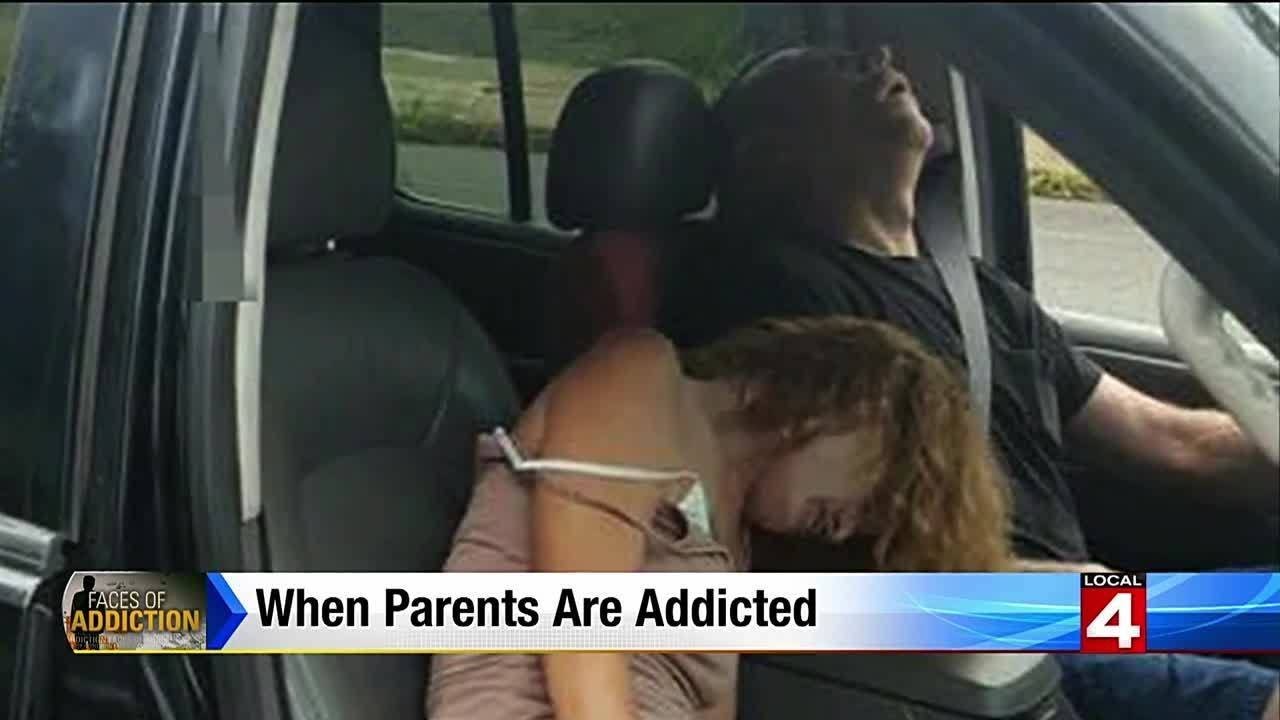In a country where drug addiction has become an increasingly severe problem, the most silent, yet heavily impacted victims are the children of drug addicted parents. Children living amidst the turmoil of addiction suffer emotional, academic, and health challenges that can scar them for life and impede their growth into well-adjusted adults. The struggle is manifold and often deeply buried under the grim cloak of stigma and societal indifference.
The Hidden Struggle: Children of Drug Addicted Parents
First off, the ordeal the children go through is usually unseen and unheard. Their vulnerable state showcases the cruel truth of addiction- it doesn’t discriminate, and it ensnares the innocent and helpless along with those directly involved. Deriving from the data gathered by our non-profit, Mothers Against Addiction, the harrowing reality for children of drug addicted mothers and fathers is an underrepresented crisis needing immediate attention. Let’s delve deeper into the specific challenges these children face.

A Closer Look at the Lives of Children Addicts and Their Unique Challenges
Emotional Turmoil: The Rollercoaster Ride of Being a Child of an Addict
Parental drug addiction imposes a cruel paradox on the child- love mixed with the inexplicable pain of witnessing their parents’ destruction. The constant fluctuations of the parents’ behaviors and emotions, due to their addiction induce a tumultuous emotional environment for the children. Chaos becomes the new normal, and instability ingrains itself as a standard pattern of their young lives.
Educational Hindrances: The Impact of Addiction in Academic Performance
Witnessing a parent succumb to addiction can significantly impede a child’s academic performance. Stress, anxiety, constant worrying about home dynamics- all these factors take a toll on the children’s ability to concentrate, thereby undermining their scholastic accomplishments. Recurrently, these children addicts are also victims of bullying due to the stigma surrounding their home circumstances, imposing yet another hurdle in their education.
Health Concerns: How the Parent’s Addiction Affects the Child’s Wellbeing
The parental drug addiction can catalyze several health concerns for these children. Physical neglect, absence of nutritious meals, inadequate healthcare, and exposure to harmful substances are tragically common, leading to recurrent illnesses and a host of developmental issues. In many cases, children of addicts also bear physical bruising- a chilling testament to the violent behavior often associated with substance abuse.

| Subject / Category | Concerns/ Conditions | Risk Factors | Possible Support Measures |
|---|---|---|---|
| Physical Health | Malnutrition, Impaired growth, High infant mortality rate | Lack of medical care, Poor living conditions, Neglect | Regular health check-ups, Nutritional supplements |
| Mental Health | ADHD, Depression, Anxiety, PTSD | Chronic stress, Emotional neglect, Exposure to parental drug use | Counselling, Cognitive Behavioural Therapy |
| Emotional Health | Low self-esteem, Emotional withdrawal, Aggression | Emotional, physical, and sexual abuse, Lack of healthy parental bonds | Family therapy, Peer groups, Socio-emotional learning programs |
| Housing Stability | Homelessness, Frequent moves, Inadequate housing | Poverty, Unreliable income, Instability caused by parental addiction behaviours | Housing programs, Financial assistance, Social interventions |
| Poverty | Lack of basic needs, Limited access to education | Low household income, Employment instability | Government aid, School meal programs, Career counselling for parents |
| Inheritance of Addiction | High risk of substance abuse, Potential for mental health disorders | Genetic predisposition, Exposure to parental drug use | Preventive education, Regular screening for substance use, Counselling |
| Educational Performance | Learning difficulties, Poor school attendance | Lack of parental guidance, Inconsistency in routine | Tutoring support, Mentorship programs, School counselling |
The Far-Reaching Effect of Parental Drug Addiction on Children
Defining the Lasting Impact: Drug Addicted Parents Effects Children
It’s not just about the immediate consequences; the drug addicted parents effects children profoundly in the long-term as well. Low self-esteem, trust issues, difficulties in forming healthy relationships, increased propensity towards substance abuse- the list goes on.
The Devastating Reality of Children of Drug Addicted Mothers
Children of drug addicted mothers face an even more distressing predicament. Born with withdrawal symptoms, these newborns fight a battle from their very first breath. As they grow, cognitive, behavioral, and emotional challenges become constant companions, making normalcy a distant dream.
Analyzing the Implications of Being a Child of Drug Addicted Parents
Being a child of drug addicted parents also increases the chances of encountering legal issues, thriving in a violent environment, and enduring prolonged periods of poverty. Studies show that these children are more likely to get entangled in crime, either as a means to escape their harsh reality, or as a mere replication of what they’ve experienced in their homes.

Unveiling Crucial Details: Children of Addicted Parents Important Facts
Children living with an addicted parent are subjected to higher rates of emotional, physical, and sexual violence, mostly arising from a destabilized home environment. Add on to it factors like housing instability, poverty, and poor physical health, and you’re looking at a generation teetering on the brink of crisis.

Children of Addiction: The Constant Battle for Normalcy
The Burden of Responsibility: Growing Up with Addicted Parents
Children of addiction often grow up too soon. With their parents incapacitated by their addiction, the mantle to manage household chores, care for younger siblings, and keep up appearances for the external world often falls on their tender shoulders.
Lost Childhood: The Stealing Impact of Parental Drug Addiction
Another sad truth for children with addicted parents is the stealing away of their innocence. When the parent’s addiction should have been helping them hunt for “Walmart eggs” for their Easter hunt, these children deal with resuscitating unconscious parents and coping with continuous pandemonium at home.

Children Living with an Addicted Parent Are More Vulnerable: Here’s Why
Exposure to Crime and Violence: A Closer Examination
With addiction, crime often follows – either through the parent’s activities or through the environments these families frequent. Exposure to such aggressive elements can lead these already vulnerable children further into danger.
Increased Risk of Mental Health Issues: The Silent Enemy
Research shows that these children bear a significantly higher risk of developing mental health disorders. Anxiety, depression, post-traumatic stress disorder can become their lifelong companions, pushing them further into the darkness if appropriate interventions aren’t implemented.

The Prolonged Effect: Children of Drug Addicts and the Transition into Adulthood
As they grow, children of drug addicts carry their wounds with them. They often struggle with relationships, have difficulty establishing a stable career and are more prone to substance abuse. Their early exposure to addiction lays fertile ground for the very traps their parents have fallen into, creating ripples that may affect future generations.
Providing Help: Strategies for Supporting a Child Whose Parent is Struggling with Addiction
Helping a child whose parent is struggling with addiction extends beyond getting the parent into a status of sobriety. The children need support systems- from therapy to mentoring programs to stable, caring relationships that can help them transform their pain into strength.
The Positive Spin: Stories of Resilience from Children with Addicted Parents
Despite the grim reality, there’s hope. Countless stories abound of children who, despite their parents’ addictions, have turned their lives around, demonstrating heroic resilience and strength. We, at Mothers Against Addiction, have had the honor of being part of several such stories, marking the real victory in this silent battle.
The Silver Lining: Breaking the Cycle of Addiction
Breaking free from the cycle of addiction is hard, but it’s not impossible. Having an understanding of their genetic vulnerability, children of addicts can actively choose to break this cycle and tread a healthier path. An exploration into “How To explain drug addiction To a child” can assist in this endeavour.
From Battle to Victory: Embracing a Future Beyond the Ashes of Addiction
While the scars remain, they can become the stepping stones towards a stronger, resilient personality. With the right support, resources, and guidance, children of drug addicted parents can rise above their circumstances and envision a future beyond the ashes of addiction. That’s the victory we envisage. That’s the vision of Mothers Against Addiction.
This silent battle needs to be fought, not just by the victims or their families but by society as a whole. By acknowledging their struggles, providing the needed support, and treating them with compassion and respect, we can ensure that children of drug addicted parents are given the opportunity to live a life of normalcy and fulfillment that they so rightfully deserve.
How does parental drug use affect children?
Parental drug use can put kids in a right pickle. It often leads to unpredictable behavior, neglect, and abuse, among other things. It can stir up a hornet’s nest of issues, from developmental problems to academic difficulties, and even mental health issues. Just imagine, they’re being robbed of their chock-full, happy childhood. So, the effects? Pretty grim, mate.
Can addiction be passed down to children?
Here’s a curveball, addiction can arguably be passed down to children. Scientific research suggests a mixed bag of genetics and environment. To put it in simple terms, a mix of ‘nature and nurture’ – so, both inherited susceptibility and exposure to addictive substances or behaviors.
How does maternal substance abuse affect children?
When the mum’s knee-deep in substance abuse, it’s devastating to her kiddies. Before they’re even born it can cause premature birth, low birth weight, and developmental issues. Later on, it often leads to emotional and behavioral problems. Honestly, it’s heartbreaking.
What are the psychological effects of addicts on children?
Emotionally speaking, kids of addicts trudge through thick and thin. The instability can cause depression, anxiety, trust issues, guilt, and low self-esteem. It’s like walking on eggshells, and the stress can create a mental minefield that’s hard to navigate.
What are the genetic markers for addiction?
Looking for genetic markers for addiction? It’s a Pandora’s box of sorts. We do know they exist, but nailing them down has been a hang-up for scientists. It’s all tied up in genes that influence how we deal with stress or how we get a kick out of certain things.
Are children of addicts more likely?
‘Are the kiddos of addicts more likely?’ Well, sad as it may seem, the apple doesn’t fall far from the tree. They’re at a higher risk, yes, owing to both genetic factors and the environment they’re raised in – it’s a double whammy!
Is addiction genetically inherited?
Talking about ‘Inherited or Not?’, addiction sure has a genetic component. This means if your folks had a struggle with it, your risk hikes up. But, it’s not written in stone. Entirely? Nope, but kind of, but not really.
Is addiction hereditary or environmental?
The million-dollar question, “Is addiction hereditary or environmental?” Well, it’s a bit of both, to be frank. Genetic factors open the gate, while environmental factors push you through. It’s like being dealt a bad hand, but how you play the game is just as crucial.




























